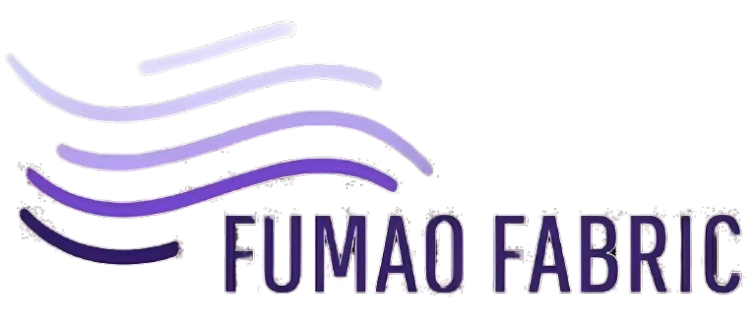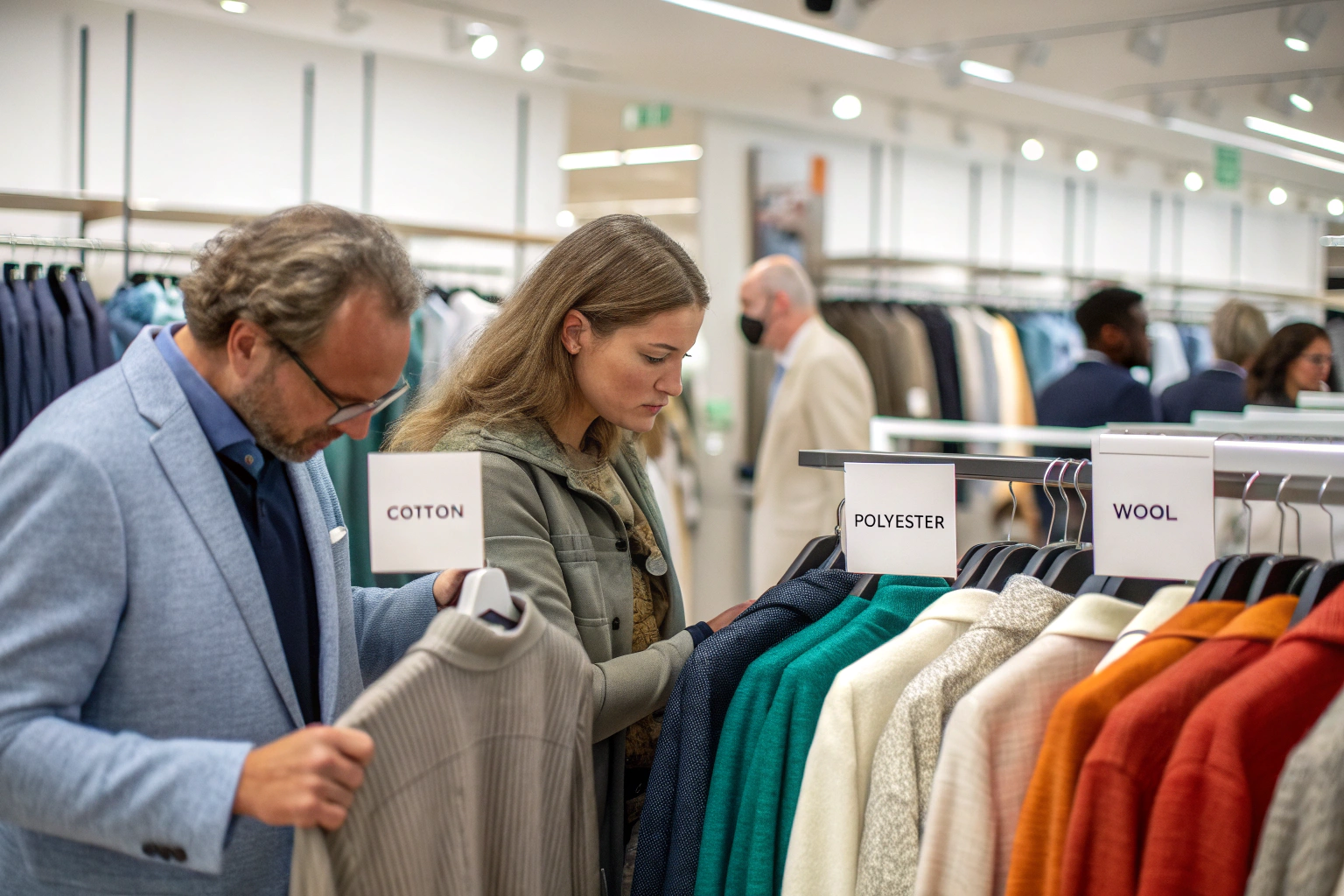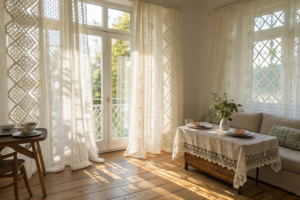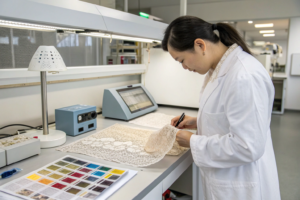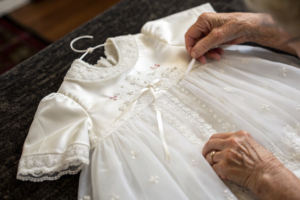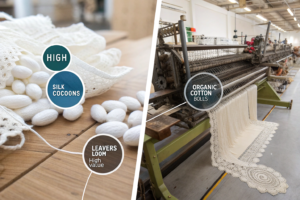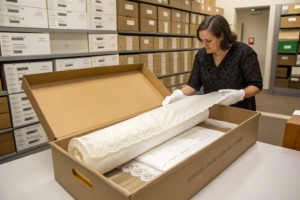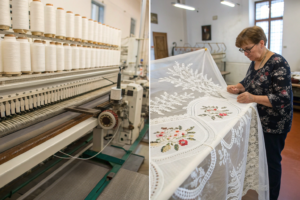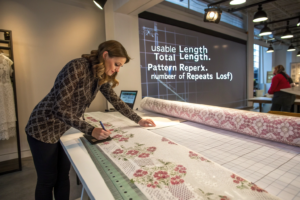Fabric composition labels provide key information about the fibers used in a garment. They are an important reference for assessing quality, durability, care requirements, and sustainability.
A fabric composition label identifies the fiber types and their percentages in a textile. It may also include details on functional finishes and eco-certifications, which help evaluate performance and environmental impact.
Understanding these labels allows both professionals and consumers to make informed sourcing and purchasing decisions.
What does fiber content mean?
Fiber content states the type and percentage of fibers that form the fabric.
This information determines comfort, performance, and overall fabric behavior.
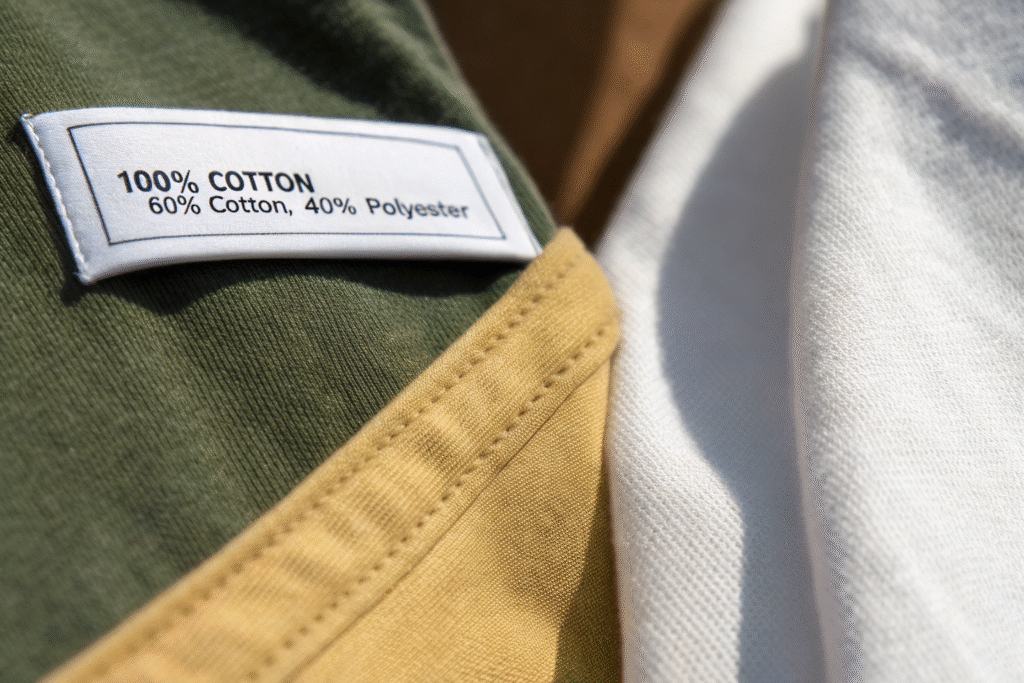
Why is fiber content important?
Fiber type defines breathability, softness, and resilience. For example, 100% cotton provides comfort but wrinkles, while polyester offers strength but less breathability. More details are available in this fabric fiber guide.
How do fiber blends work?
Blended fabrics balance properties. A 60% cotton, 40% polyester mix is both soft and durable. Learn more about fiber blending in textiles.
How do natural and synthetic fibers differ?
Fibers are generally divided into natural and synthetic categories.
Natural fibers offer breathability and comfort, while synthetics emphasize durability and resistance.
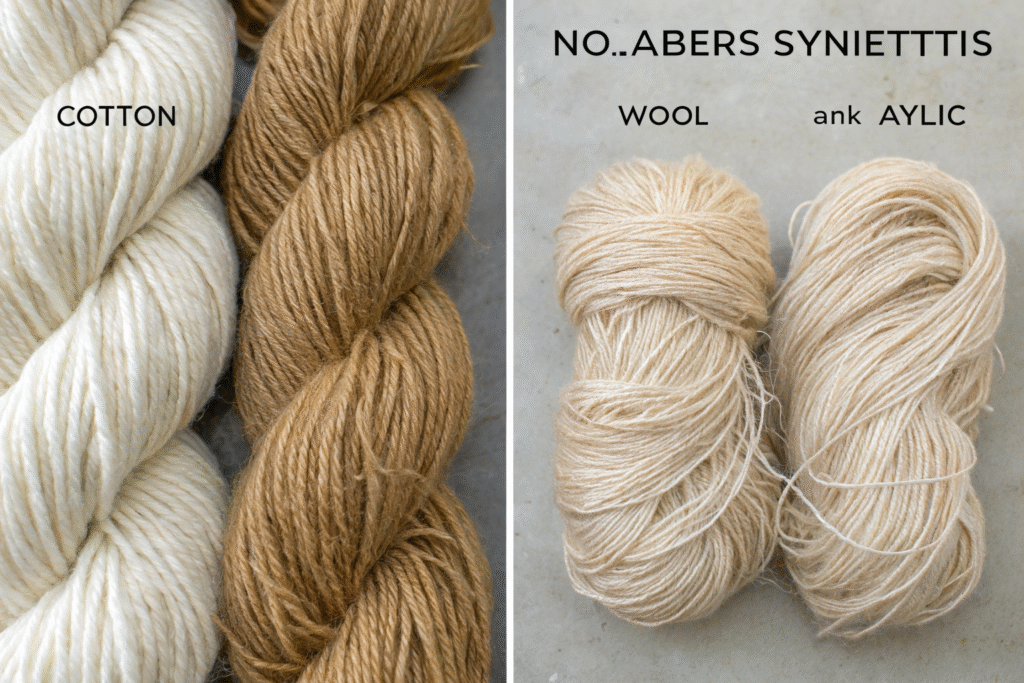
What are natural fibers?
Natural fibers include cotton, linen, silk, and wool. They are biodegradable and breathable. More information can be found at CottonWorks and Woolmark.
What are synthetic fibers?
Synthetic fibers include polyester, nylon, and acrylic. They are wrinkle-resistant and long-lasting. See more at ScienceDirect on synthetic fibers and FabricLink.
Why are percentages important?
The percentages listed on a label indicate how much of each fiber is present.
Even small amounts significantly affect fabric performance.
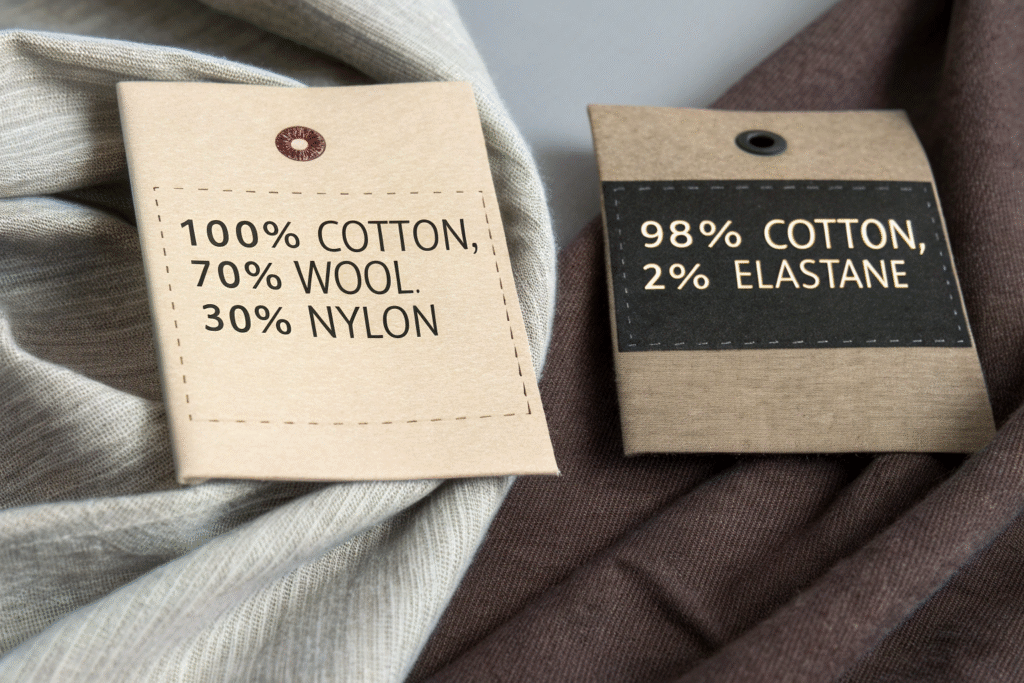
How do percentages influence durability?
A 70% wool, 30% nylon fabric keeps wool’s warmth but gains nylon’s strength. Read more at Woolmark wool blends.
Why does elastane matter?
Only 2–5% elastane can give jeans or sportswear notable stretch. Learn more from Lycra official site and stretch denim technology.
What are functional finishes?
Labels may mention finishes that improve performance.
These treatments add value, making fabrics suitable for specific uses.
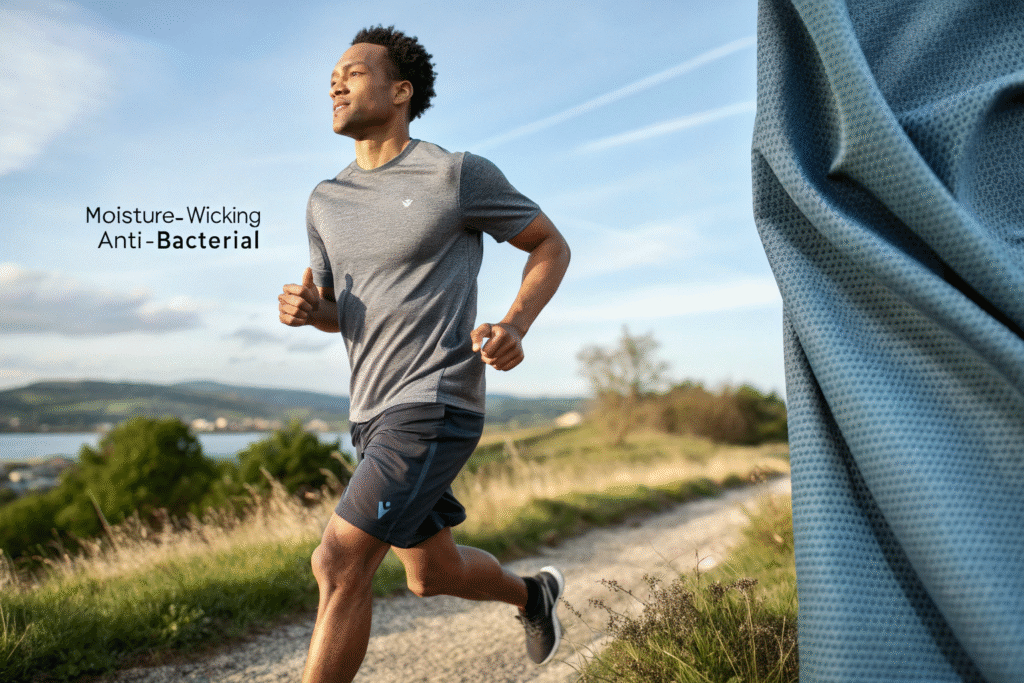
Which finishes are common?
- Moisture-wicking → sweat control
- UV protection → sun resistance
- Anti-bacterial → odor reduction
- Water-repellent → spill protection
Details are available at Coolmax technology and HeiQ innovations.
Do finishes remain permanent?
Some finishes are durable, while others fade. Testing standards are explained at AATCC.
How do care instructions relate to composition?
Care requirements are linked to fiber type and finish.
Following the label ensures fabric lifespan and prevents damage.
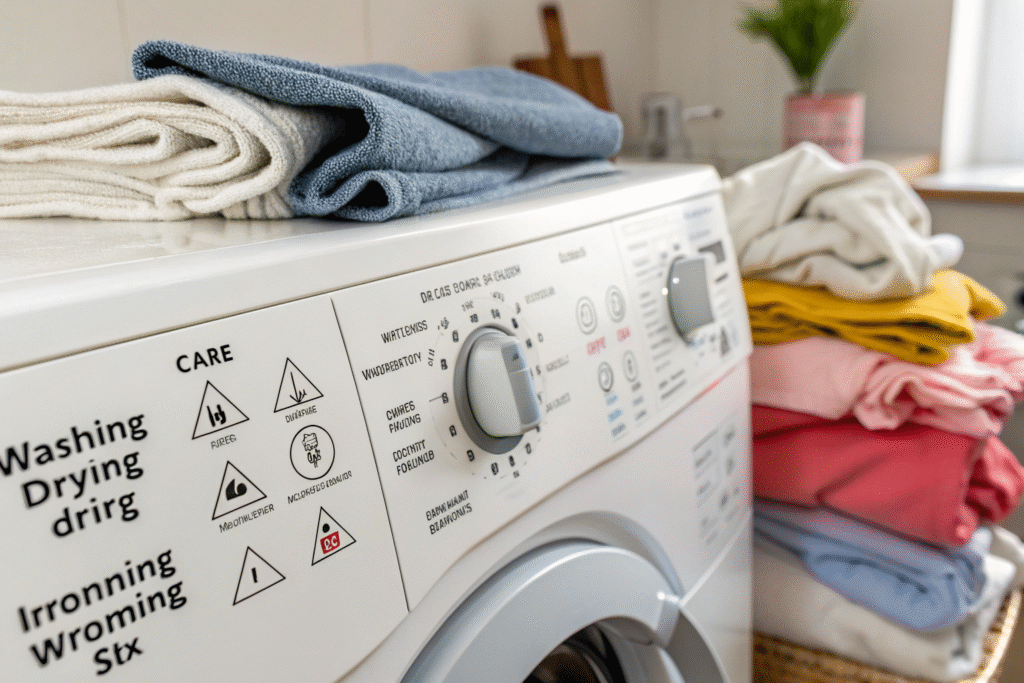
How should cotton and linen be washed?
They may shrink, so cool water is advised. Read more at cotton care guidance.
Why is wool and silk more delicate?
These fibers require hand washing or dry cleaning. See Woolmark washing guide and silk care basics.
What do eco-certifications mean?
Many fabrics now include eco-labels that certify sustainability.
These marks signal safe chemicals, ethical sourcing, and reduced impact.
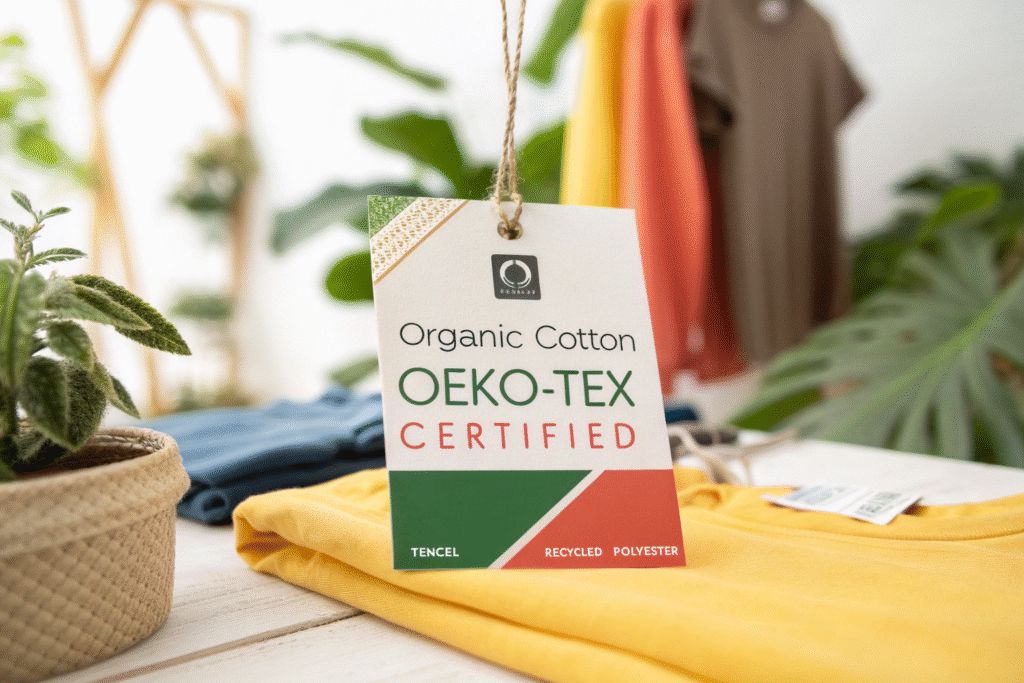
Which certifications are important?
- GOTS (Global Organic Textile Standard)
- OEKO-TEX®
- GRS (Global Recycled Standard)
Read more at GOTS official and OEKO-TEX.
Why are eco-fabrics significant?
Sustainability matters to modern buyers. Fibers such as Tencel™ and recycled polyester reduce footprint. Learn more at Tencel official site and rPET recycling.
Conclusion
Fabric composition labels provide a clear guide to fiber content, percentages, finishes, and eco-certifications. By reading them correctly, one can determine comfort, durability, care, and sustainability of garments.
In summary:
- Check fiber types.
- Note percentages.
- Identify special finishes.
- Confirm certifications.
At Shanghai Fumao, we supply certified fabrics to global buyers, ensuring consistent quality and sustainable sourcing. For bulk orders or custom fabric solutions, contact our Business Director Elaine at elaine@fumaoclothing.com. We guarantee fast sampling, reliable production, and smooth international logistics.
